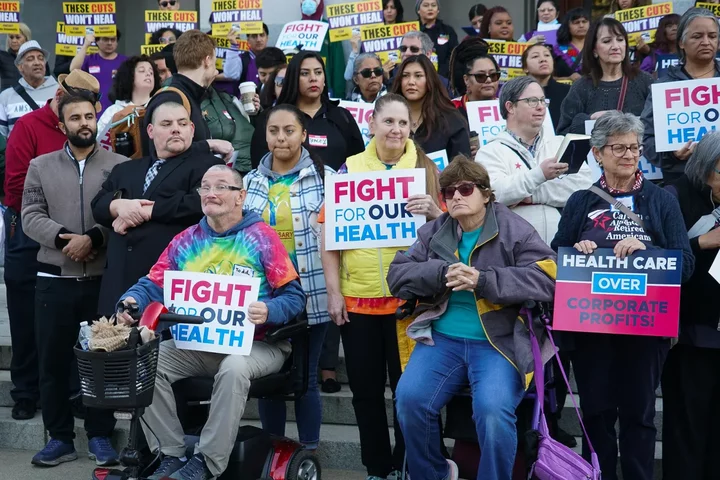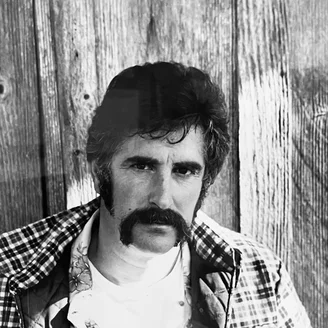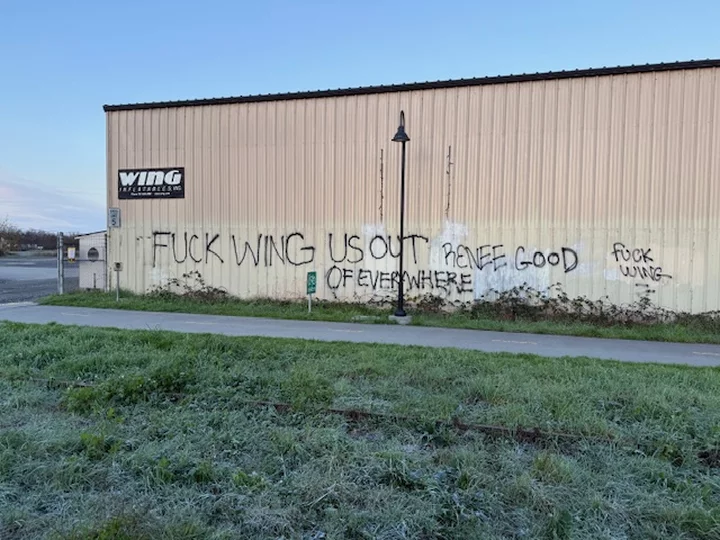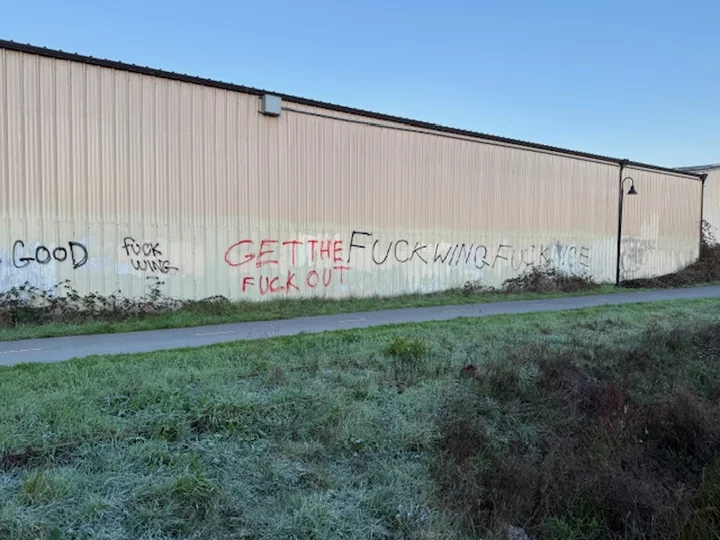This Valentine’s Day, Get Yourself Married on the Madaket or in the Library’s Majestic Humboldt Room
LoCO Staff / Thursday, Jan. 15 @ 3:05 p.m. / Love
Photos: Isabella Vanderheiden, County of Humboldt
Press release from the Humboldt County Clerk-Recorder’s Office:
Couples looking to tie the knot on Valentine’s Day can take advantage of extended hours and unique ceremony locations offered by the Humboldt County Clerk-Recorder’s Office on Saturday, Feb. 14.
In-person civil wedding ceremonies will be available, by appointment, during extended hours from 11 a.m. to 5:30 p.m. to accommodate couples who wish to make their love official on this romantic holiday.
This year, the Clerk-Recorder’s Office will perform civil wedding ceremonies at two memorable locations.
Couples have the option to exchange vows aboard the historic Madaket and experience romance on the water with breathtaking views of Humboldt Bay as their backdrop. Couples may also choose to say “I do” surrounded by knowledge and history at the Humboldt County Public Library’s beautiful Humboldt Room in Eureka. The Humboldt Room offers an elegant, intimate indoor setting with a fantastic view of Humboldt Bay from the library’s second floor.
Ceremonies scheduled at both locations will be held rain or shine.
How to Book a Valentine’s Day Wedding Ceremony
Civil wedding ceremony bookings must be done in person at the Humboldt County Clerk-Recorder’s office. The fee to book a wedding ceremony is $100. Spanish language ceremonies are available upon request.
Due to high demand, couples must book their Valentine’s Day ceremonies no later than Wednesday, Feb. 11 and are reminded that a marriage license is required for a wedding to be performed.
All couples must arrive to their ceremony with marriage license materials on hand.
How to Obtain a Marriage License
A marriage license can be obtained up to 90 days before the ceremony date. A marriage license application may be completed in person in the Humboldt County Clerk-Recorder’s office, or you may begin the application process online at tinyurl.com/HumCoWeddings.
Please note that the couple must appear in person to complete the application process and provide a valid government-issued ID. The marriage license application process takes about 30 minutes and costs $78 for a public license or $80 for a confidential license.
Choose Your Own Wedding Officiant
Couples can make prior arrangements with the Humboldt County Clerk-Recorder’s Office for the ceremony to be performed by a person of their choice, age 18 or older. The persoAbout the Humboldt County Clerk-Recorder’s Office About the Humboldt County Clerk-Recorder’s Office n must be an ordained officiant or deputized to perform the ceremony in advance by the Humboldt County Clerk-Recorder. The fee to be deputized to officiate a wedding ceremony is $55. The Humboldt County Clerk-Recorder’s Office will provide comprehensive wedding ceremony packets containing ceremony wording, instructions and sample license completion guides for all officiants.
For more information or to schedule your wedding ceremony, please call 707-445-7593 or visit HumboldtGov.org/Clerk-Recorder
About the Humboldt County Clerk-Recorder’s Office
The Humboldt County Clerk-Recorder’s Office maintains vital records and provides essential services to the public, including the issuance of marriage licenses and performance of civil marriage ceremonies. The office is committed to providing efficient, professional service to all Humboldt County residents. For more information on services the Humboldt County Clerk-Recorder’s office provides, please visit humboldtgov.org/Clerk-Recorder
BOOKED
Today: 6 felonies, 11 misdemeanors, 0 infractions
JUDGED
Humboldt County Superior Court Calendar: Today
CHP REPORTS
Sr255 / V St (HM office): Live or Dead Animal
Alder Grove Rd / Hilton Ln (HM office): Traffic Hazard
Sr299 / Sr3 (RD office): Assist CT with Maintenance
110 Nugget St (YK office): Hit and Run No Injuries
ELSEWHERE
RHBB: EPD Issues Alert for Missing Woman
Mad River Union: Fire catastrophe has Arcata firing on all cylinders
Mad River Union: Fresh fire details emerge during Planco discussion
Mad River Union: ‘Last mile’ broadband planning moves ahead
Local Business Coalition Launches ‘Arcata Fire Relief Fund,’ Seeded by a $50,000 Donation From PG&E
LoCO Staff / Thursday, Jan. 15 @ 8:25 a.m. / Fire
Photo: Garth Epling-Card
Press release from Humboldt Made:
Humboldt Made Launches Arcata Fire Relief Fund Following $50,000 Commitment from The PG&E Corporation Foundation
Community partners unite to support businesses impacted by devastating Arcata fire
In response to the devastating fire that impacted several Arcata businesses, a powerful, community-driven recovery effort is taking shape across Humboldt County. What began as a moment of shock and loss has quickly transformed into an extraordinary example of regional collaboration, generosity, and shared commitment to ensuring that local businesses are not left to rebuild alone.
Humboldt Made, working in close partnership with the Arcata Chamber of Commerce, City of Arcata, Humboldt Lodging Alliance, Small Business Development Center, Pay It Forward Humboldt, and other regional leaders, has launched the Arcata Fire Relief Fund to provide direct financial support to the businesses affected by the fire. The fund will operate as a 100% pass-through donation, with no administrative fees taken, ensuring that every dollar raised goes directly to impacted businesses.
A defining moment in this effort came when local Pacific Gas and Electric Company leaders proactively reached out to Humboldt Made to identify the nonprofit and the partner to help distribute relief funds. Without being asked, The PG&E Corporation Foundation stepped forward with a commitment of $50,000, recognizing both the urgency of the situation and the importance of acting quickly to support small businesses during a moment of crisis. The funds are expected to be distributed in April, and in the meantime, Humboldt Made has opened a dedicated bank account and begun accepting additional community donations to build a strong, collective relief pool.
“This kind of leadership matters,” said Rosa Dixon, Executive Director of Humboldt Made. “PG&E didn’t wait to be asked — they saw a need and stepped in with real, meaningful support. That generosity set the tone for what has become a much larger community effort. Our small businesses are the soul of our towns, and when they’re hurting, we all feel it. This response has been about listening first, working together, and making sure support gets to the people who need it most — quickly, transparently, and with care.”
The Arcata Chamber is leading a needs assessment survey to better understand the immediate and long-term challenges facing affected businesses and employees. Results from that survey will help guide a collaborative committee — made up of trusted community partners — in determining how relief funds are distributed.
“The Arcata Chamber is incredibly grateful for this collaboration with all the community partners, especially Humboldt Made,” said Meredith Maier, Executive Director of the Arcata Chamber. “The PG&E Corporation Foundation’s early commitment has given this effort momentum and hope, and together we’re making sure these funds are handled responsibly and reach businesses in a way that truly supports recovery.”
Additional organizations have already pledged support, including Cal Poly Humboldt, Coast Central Credit Union, Redwood Capital Bank, and Vero, demonstrating the depth of commitment across sectors to help Arcata rebuild.
“As a board, it was important to us that this fund be handled with complete integrity,” said Michael Kraft, Board President of Humboldt Made. “That’s why we’ve committed to taking zero administrative fees. One hundred percent of donations will go directly to businesses impacted by the fire. PG&E’s contribution made it possible to build this fund the right way — from the start — with transparency, accountability, and trust.”
To help kick off fundraising efforts, Cal Poly Humboldt has donated 100 basketball game tickets, which Humboldt Made will sell at the Cal Poly men’s basketball game this Thursday, with all proceeds benefiting the Arcata Fire Relief Fund. Humboldt Made volunteers will be on site starting at 4:30 PM, accepting donations and sharing information about the relief effort. A QR code will be available to make giving quick and easy.
“Hundreds of us at PG&E are proud to call Humboldt County home. We saw the destruction caused by the downtown Arcata fire firsthand, and the businesses impacted are important to us and our families. We’re committed to supporting our neighbors, and we’re proud to seed this fund alongside our partners. We hope that the recovery effort continues to grow through the support of other local organizations,” said Brian Gerving, Regional Senior Manager for PG&E’s Humboldt Division.
As Arcata businesses begin the long road to recovery, this collective effort reflects a shared belief that rebuilding is strongest when done together. Humboldt Made will continue working alongside its partners to ensure funds are distributed thoughtfully, equitably, and in a way that honors the resilience of the local business community.
Donation Link: https://square.link/u/X8PlFEsk
For updates, vetted fundraising opportunities, and relief resources, visit the Arcata Chamber website.
Media Contact: Rosa Dixon Executive Director, Humboldt Made rosa @humboldtmade.com 707-601-1638
Get Ready for an Airplane to Scream at You Saturday Afternoon
LoCO Staff / Thursday, Jan. 15 @ 8:04 a.m. / Non-Emergencies
Photo: Civil Air Patrol, via the Sheriff’s Office.
Press release from the Humboldt County Sheriff’s Office:
The Civil Air Patrol, in coordination with the Offices of Emergency Services for Humboldt and Del Norte Counties, intends to deploy one small airplane on a north-to-south coastline flight on Saturday, January 17, 2026. The flight is an exercise to train personnel and test loudspeakers that might be used in a distant-source tsunami warning situation, such as the 2011 undersea 9.0 magnitude earthquake and tsunami that first struck Japan and then sent dangerous waves onto our shores hours later.
The test flight is expected to begin at the Oregon state line at about II:30 a.m., cross into Humboldt County at about 12:20 p.m., and leave the coastline just south of Shelter Cove at about 1:40 p.m.
The plane’s loudspeaker system will announce that the flight is a test of the Civil Air Patrol’s public address system and reference the County Office of Emergency Services.
This Saturday’s flight will utilize a brightly-painted red, white, and blue single-propeller airplane, with the letters “CAP” prominently visible under the wings.
Similar Civil Air Patrol loudspeaker test flights took place in 2018, 2021 and 2022, with coordination from coastal counties, the National Weather Service Eureka Office and the Redwood Coast Tsunami Work Group.
Bad weather or technical problems may cause the test flight to be rescheduled.
During a real tsunami warning, if the distance from the earthquake provided adequate time to mobilize an aircrew and fly the plane to our coast, the audible announcement would instruct beachgoers to head inland or go to high ground, and seek further information from the local County Office of Emergency Services.
Citizens’ feedback, comments, and recordings of this Saturday’s test flight may be submitted online to the local County Office of Emergency Services as follows: · Del Norte County OES Give-Feedback form https://www.preparedelnorte.· Humboldt County OES email address: oes@co.humboldt.ca.us
The Civil Air Patrol is a volunteer-operated auxiliary of the US Air Force, and an important resource for a variety of emergency missions, including searches for missing aircraft, search and rescue operations, damage assessment, and disaster relief. For more information about the Civil Air Patrol, visit gocivilairpatrol.com.
The Fight Over How to Pay for Medi-Cal Puts Pressure on Newsom to Raise Taxes
Maya C. Miller and Jeanne Kuang / Thursday, Jan. 15 @ 7:46 a.m. / Sacramento
Advocates gather on the steps of the state Capitol in support of the Fight For Our Health Coalition, calling on leaders to address threats to health care coverage, in Sacramento, on Jan. 14, 2026. Photo by Roberta Alvarado for CalMatters
###
This story was originally published by CalMatters. Sign up for their newsletters.
###
California health care advocates, labor unions and progressive lawmakers are urging the governor and the Legislature to find new money to fund medical care and other social services for millions of low-income and disabled Californians.
Their coalition, known as “Fight for Our Health,” demanded Wednesday on the Capitol steps that the Legislature and soon-to-be lame duck Gov. Gavin Newsom take action to backfill funding cuts that President Donald Trump and Republicans approved last year.
The dilemma over how to respond to billions of dollars in cuts to social services — particularly to the budget for Medi-Cal, the state’s nearly $200 billion Medicaid program — foreshadows a showdown that will dominate both the 2026 legislative session and the midterm elections.
As one union pursues a controversial wealth tax ballot measure to offset the cuts, progressive Democrats in the Legislature are floating a separate corporate tax, though details remain scant. If that materializes into a bill, it’s also likely to divide the party, which is sensitive to accusations that Californians are over-taxed and has recently declared its leaders will focus on lowering costs for state residents.
In his final year as governor, Newsom faces a tug-of-war between two politically radioactive options: increasing taxes, or letting benefits lapse for millions of low-income and disabled Californians. Though his administration has sought only to blame Trump for the federal cuts, health care advocates made it clear they will push Newsom to help prevent steep coverage losses.
“I want to take a moment to address the governor and the state Legislature,” said Judy Mark, president of Disability Voices United, from the Capitol steps. “We know that you are not responsible for these awful cuts, but now the responsibility does lie in your hands. You have the power to protect us.”
The governor angered health advocates when he didn’t include money to backfill coverage when he released his state budget proposal, which acknowledges that tens of thousands will lose coverage and counts fewer services among projected revenue savings. This year, the state began freezing new Medi-Cal enrollment for undocumented immigrant adults over rising costs in the program, over the objections of progressives and health advocates.
Newsom’s analysts expect about 522,000 Californians to lose Medi-Cal coverage in the 2026-2027 fiscal year, rising in the future to 1.8 million. His administration has said the state simply doesn’t have the money to pay for coverage for people who are booted off the program due to new federal laws.
One union, the Service Employees International Union–United Healthcare Workers West, has proposed a ballot initiative that would impose a wealth tax on California billionaires to help cover the roughly $30 billion the state would lose annually from Trump’s tax-and-spending law. Proponents say the one-time 5% levy would generate about $100 billion for the state’s health care system. About 10% of the money raised would be reserved for public schools.
But Newsom is fighting the measure, which has yet to qualify for the ballot but has still sent Sacramento and Silicon Valley into a tizzy.
Billionaires critical to state budget
The proposal has set off a flurry of opposition. Google founders Larry Page and Sergey Brin have reportedly moved to shift some business entities out of California while others are threatening to leave. Democratic strategists close to Newsom are running a campaign committee to defeat the measure as the union collects the nearly 900,000 signatures needed to qualify it for the November ballot.
Newsom, who has repeatedly opposed state wealth tax proposals, this week told Politico he’s been personally pushing the measure’s proponents to drop it over concerns it could drive the targeted demographic — and their incomes — out of California. He also has longstanding personal ties to many of the tech titans who would likely be subject to a proposed wealth tax, and has reason to keep them close: they are potential donors should he make an expected presidential run after finishing up his term as governor this year.
Even as progressives push Newsom to raise revenue to bolster Medi-Cal, few of them have actually embraced the wealth tax proposal, with most of them taking a wait-and-see stance. They also won’t criticize Newsom’s opposition, a potential sign that liberal lawmakers are hoping he’ll be willing to pursue other funding for health care.
Newsom’s office did not respond to inquiries Wednesday about whether he would consider alternative tax proposals.
The health advocates said they would make replacing federal funding a key priority this legislative session. Progressive lawmakers, who led the charge against Newsom’s proposal to cut costs by freezing Medi-Cal for undocumented immigrants, have signaled they’ll take up the fight as well.
Assembly Health Chair Mia Bonta, an Oakland Democrat, suggested the state look at imposing new taxes on corporations that employ workers who are paid so little they qualify for public health care assistance.
“We cannot let these corporations keep getting a free ride,” she said. “California has a responsibility to act decisively, and we will.”
But she has not introduced a bill, and health care advocates said they’re still just hoping to have more options on the table.
‘They’re Escalating’: A Q&A With Rob Bonta on Trump’s Immigration Crackdown
Nigel Duara / Thursday, Jan. 15 @ 7:40 a.m. / Sacramento
Attorney General Rob Bonta during the swearing-in ceremony for Senate President pro Tempore Monique Limón in the Senate chambers at the state Capitol in Sacramento on Jan. 5, 2026. Photo by Miguel Gutierrez Jr., CalMatters/Pool
###
This story was originally published by CalMatters. Sign up for their newsletters.
###
At the end of December, the tide turned decisively against the Trump administration’s deployment of the National Guard in three states over the objections of their governors, including California.
First, the U.S, Supreme Court on Dec. 23 sided with Illinois in its effort to block Trump from sending the National Guard to Chicago as part of its immigration crackdown. The court rejected the same legal reasoning that Trump used to federalize and deploy the National Guard in Los Angeles last summer when protests erupted there.
“The government has not carried its burden to show that (the law) permits the President to federalize the Guard in the exercise of inherent authority to protect federal personnel and property in Illinois,” the unsigned order from the Supreme Court read.
Then the administration quietly withdrew its appeal of a federal court decision that the president could not keep California National Guard troops under federal control in perpetuity. That withdrawal marked a victory for California Attorney General Rob Bonta, who had filed an amicus brief in the Illinois case.
“The law got developed in a way that will prevent what happened over the last six months from ever happening again,” Bonta said. “I think this door is closed to Trump.”
CalMatters spoke with Bonta this week about those cases and how he views the Trump administration’s current focus on Minneapolis. The interview has been lightly edited for clarity.
CalMatters: In terms of what California does next on this issue, is there anything that you all are doing in preparation for maybe (large-scale immigration raids) coming back, or perhaps an escalation in tactics like we’re seeing in Minnesota?
Bonta: We’re ready for anything. I think when you see incidents like we’re seeing in Minnesota, you have to assume that it could happen here in California.
You know, the Trump administration has made no bones about it. They are going after blue states and only blue states. And it’s political, it’s weaponization, it is partisan. They’re trying to own the libs and get the Dems. That’s their whole reason for being. And chief among them, the biggest state in the nation that has rejected Trump three times when he’s running, that sticks in his craw, he doesn’t like it.
CalMatters: In Los Angeles, I don’t recall them going door-to-door to, you know, to try and grab people like we’re seeing in Minnesota. Is this an escalation?
Bonta: I think they’re escalating. Minnesota shows it seems to be an escalation. I mean, there were some pieces that are the same, that are horrific and terrorizing and traumatizing and inappropriate, like removing license plates and being in a moving truck, pulling up to a Home Depot and having people run out of the back and all the profiling that was being done.
I think it’s an escalation, and they’re doing more. They’re really trying to hammer Minneapolis and Minnesota. It’s the home of the vice presidential candidate that ran against Trump, right? It’s the place where their racism is on full display with their attacks on Somalis. It’s where the YouTuber was trying to suggest that there were child care centers that didn’t have any children and there was something inappropriate with what he was showing.
So, Minnesota is a big target right now. California has always been, and I think they will put us back in the crosshairs at some point, and we’ll be ready.

California National Guard soldiers stand with shields outside the Federal Detention Center in downtown Los Angeles, on June 8, 2025. Photo by Ted Soqui for CalMatters
CalMatters: What happened at the Supreme Court?
Bonta: The Supreme Court weighed in and basically said that the theory that the president had been operating on all along was completely unlawful and without foundation, truly a slap in the face and an embarrassing and devastating loss for Trump, who thinks he can always run to the Supreme Court and get what he wants.
In summary California Attorney General Rob Bonta has sued the Trump administration more than 50 times. One recent victory ended a National Guard deployment in Los Angeles.
And they followed the law, the law that we had argued always applied, and that there was no authority … to deploy the military, that the “regular forces” included the military forces. There was no analysis that they were unable to execute the law, and there was no authority for the military to be even executing any laws, given the Posse Comitatus Act (which prevents the president from using the military as a domestic police force). So it was really a devastating and shocking loss for Trump.
CalMatters: The 9th U.S. Circuit Court of Appeals allowed the Trump administration to deploy the National Guard in L.A. in June, but ruled differently six months later. The district judg
e’s rationale was that Trump couldn’t re-federalize troops indefinitely.
But does that indicate to you that if the material conditions on the ground in L.A. were to change, similar to what the Trump administration cited in June when they claimed protesters were committing violent acts against federal personnel and property, the Trump administration could authorize a new deployment? Is that your understanding, or am I wrong on that?
Bonta: I think you’re wrong, but I don’t think it’s an unreasonable thing to say, but let me just explain my thinking.
That case in L.A. in June was the very first one in the whole nation, and built into the exercise of authority of the federal administration here when it’s deploying the military is a great deal of deference. I think that deference was provided. It was the first case. There were mostly peaceful protests, but some violence, as you just mentioned.
It was the first time they were seeing what the Trump administration was doing here.
And then they saw it again in D.C. Then they saw it again in Portland, and they saw it again in Illinois. The judges saw what was happening, and they saw what’s being said, and saw the rationale, they saw how Trump said that Portland was a war zone when it was a peaceful city, they see how Trump says, ‘I’m going to bring the military in to do the very thing the Posse Comitatus Act prohibits, to enforce criminal law, because these blue cities are not cracking down on crime.’ Exactly what the military cannot do!
And so they saw what he was doing with the military and I think they got a sense of where this was really headed and what was happening here. … So now that the U.S. Supreme Court has said you make sure “regular forces” is military forces, you need to make a showing that all the military forces cannot stop the concrete block from being thrown, or stop the Molotov cocktail from being thrown – he’ll never be able to show that – then you can bring in the National Guard.
CalMatters: Just one point on that. Circumstances being what they are today, again, if they were to mimic whatever happened in June, would that be a different conversation if the material conditions on the ground change in Los Angeles?
Bonta: Yeah, totally different. We’d go into court right away, we would win, we’d get an order, and the 9th Circuit would uphold it. Because there would be no showing that the military, all the military — I mean, thousands of military, there’s multiple military bases in California – that they couldn’t stop one person throwing concrete. I think our military is fully capable of that.
So, same exact circumstances from June happening today, 9th Circuit affirms it and does not stay it.
OBITUARY: Donald Edward Metaxas, 1937-2025
LoCO Staff / Thursday, Jan. 15 @ 6:56 a.m. / Obits
Donald Edward Metaxas
December 1, 1937-December 31, 2025
Don was born in Fort Bragg on December 1, 1937, the third child of Harry and Carol Metaxas. When he was eight years old the family moved to Eel Rock, where his father worked on the railroad along with many other Greek and Italian immigrants. Don met his wife Sarah Hancock at the Seventh Day Adventist Church in Miranda and they were married in 1962, in Olympia, Washington, where Don was stationed in the army.
In 1965 they returned to Humboldt County and lived in Eureka until 1983, when they moved to Eel Rock. Don worked building roads and freeways throughout Humboldt including the section of 101 that passes through Arcata. In March 2004 his wife, Sarah, suffered a devastating stroke. Don and his sister-in-law Doris tended Sarah for over three years until her death in 2007. Don was involved in a serious car crash in December 2025 and while we all thought he would survive and recover, he took a turn for the worse the morning of December 31st and passed quickly.
Don was preceded in death by his wife Sarah Metaxas; his parents Harry G. Metaxas Sr., and Carol Metaxas; his parents-in-law Harvey and Retta Hancock; his sister Joyce and her husband Dennis Brandt; his nephew Michael Loewenstein of Lebanon Oregon, his brother-in-law Mark E. Hancock; great niece Shelby Brandt; as well as many aunts, uncles, and cousins.
He is survived by his best friend Bill McNitt and Bill’s wife and Don’s adopted niece Natalie McNitt of Eel Rock; his brother Harry G. Metaxas, Jr. of Chiloquin Oregon; his sister-in-law Doris Thompson and her husband Bill of Eel Rock; his nephews Steve Metaxas and his wife Jennifer Bell of Eureka, Rob Metaxas and his wife Michelle of Eureka; and David Brandt and his wife Lori of Enterprise Oregon. He leaves three great nephews, Justin Brandt of Arcata, Chris Brandt of Sacramento, and Travis Brandt of Rio Dell. He also leaves behind his sister-in-law Barbara A. Ziegler of Eagle Point, Oregon and his niece Linda Cole and her husband Michael of Central Point, Oregon. He is also survived by his nephew Dan Hancock and his wife Lois of Pine, Colorado and many great nieces. He leaves behind many close friends including Leland and Lynn Yialelis, Carl and Larissa Richardson, Fred and Marlene Nunnemaker, John Cathey, Michael Gonzales, and so many more.
While Don and Sarah didn’t have children of their own, they opened their arms and homes to many young people over the years. Don was everyone’s favorite uncle – getting the inner tubes ready to splash wholeheartedly in the Eel River along with the kids. He was a master storyteller, when the subject was the ocean everyone would find themselves queasy from going up and down those waves, and he had you on the edge of your seat when he told how he stumbled across a grumpy black bear armed only with his pocket knife. With growls, roars, and arms raised and flailing he backed that bear down – surely that bear continues to tell that story as well!
Don was skilled at chess, was a medic in the army and was a conscientious objector in the Vietnam War. He enjoyed continuing to learn about medicine and subscribed to the Harvard Medical Journal. He loved to gamble, whether it was a road trip to Reno or a quick bet with a friend over a football game, and always thought it made the game more fun to watch.
He was an epic gardener and grafted many of the fruit trees in his orchard, and enjoyed sharing his success by leaving sacks of fruit on everyone’s doorstep. While frustrated by the damage wildlife caused to his fruit crops, he also knew he had far more than he could ever use and allowed a generous share for the creatures that he enjoyed watching.
He also enjoyed people-watching — he would find himself in a comfy corner at the party and watch all that went on. He was a hard worker, living on his own in the most beautiful of Humboldt’s rural communities Eel Rock, running a chainsaw for this year’s firewood only two weeks before his death at age 88.
Don’s charming and wicked smile, twinkling eyes, and generous nature will be greatly missed by everyone who knew him.
Don said on many occasions he didn’t want a funeral but he was always up for a party! An informal brunch will be held on Sunday February 1st at 11 a.m. in Eureka. For details on the location please call Jennifer at 707-601-3663. In lieu of flowers, make a bet on the Super Bowl, and give Don all of the credit if you win!
###
The obituary above was submitted on behalf of Don Metaxas’s family. The Lost Coast Outpost runs obituaries of Humboldt County residents at no charge. See guidelines here. Email news@lostcoastoutpost.com.
The Wing Group, Whose Arcata Factory Was Vandalized By Protesters on Saturday, Acquires Kokatat in Union of Local Success Stories
Ryan Burns / Wednesday, Jan. 14 @ 2:57 p.m. / Business
A paddleboarder in Kokatat gear (left) and a rafter in a Wing Inflatables watercraft. | Images via the Wing Group.
###
Two of Arcata’s most successful companies have joined forces, and when you consider the similarities between the two, the union makes a lot of sense.
The Wing Group, which bills itself as “the world leader in inflatable boats, life rafts, flotation, dry suits, technical apparel, and other tactical and survival solutions,” today announced that it has acquired Kokatat, producer of high-end whitewater rafting gear and apparel.
Both companies were founded by avid outdoorsmen who came to Humboldt County in the 1960s, quickly fell in love with navigating our region’s wild rivers and then parlayed that passion into a pair of Arcata-based entrepreneurial endeavors. Today the two companies collectively employ nearly 300 people.
Seriously: read Bill Wing’s story here and Kokatat founder Steve O’Meara’s story here and you’ll appreciate the many parallels. (It’s not surprising that the two know each other personally.)
Wing’s current CEO, Andrew Branagh, purchased the flagship company Wing Inflatables in 2013. At the time it employed roughly 40 people. Over the past dozen years it has not only expanded that workforce to 180 employees — with growth fueled by lucrative contracts with the Department of Defense — it has acquired a handful of other companies in the process, including Mustang Survival, FabTek, Henshaw and Patten.
In a phone interview this morning, Branagh noted a couple other parallels between the two Arcata companies.
“Both Wing and Kokatat save people’s lives for a living,” he said. “And both of us work in the military and the recreational-commercial realm.”
As for the reasoning behind the acquisition, Branagh explained that many aspects of business got more complicated after Covid, with more supply chain issues and heightened security requirements. “So scale is important,” he said.
The two companies often found each other working collaboratively and crossing over in different venues, and since the Wing Group is the larger of the two, operating on a bigger scale with more “depth and capability,” it made sense to acquire Kokatat. Branagh said he’s been in discussions with Kokatat CEO Mark Loughmiller and his wife for about four months. Loughmiller, who purchased Kokatat from O’Meara five years ago, will remain in a leadership position at the company.
In a press release issued this morning, Branagh says, “This acquisition further strengthens the Group’s whitewater and paddling presence. Kokatat has been firmly embedded in that vertical since its founding. We value the talent, technical knowledge, and the company’s unique bond with the river. Kokatat brings capabilities that few organizations possess—and Arcata remains a critical part of that expertise and legacy.”
In addition to the Arcata warehouses, Wing Group companies operate facilities in Washington, Florida and West Virginia as well as in Vancouver, Canada, and Wincanton, England.
The Outpost first reached out to Branagh yesterday after catching wind of the deal. He responded via email, confirming that there was “something to the rumors,” but he also wanted to discuss another matter — namely, the vandalism of Wing’s Arcata production facility on Saturday by people protesting ICE’s killing of Renee Good in Minneapolis and U.S. military operations in Venezuela.
Graffiti on the Wing Inflatables factory at 1220 5th Street in Arcata. | Photos courtesy of Wing.
###
Branagh found the spray-painted vandalism frustrating, to say the least.
“The perception is that we’re a military company, but the fact of the matter is … we make non-lethal stuff that the military buys [and] we also are very proud of our river rafting and heritage,” he said. “We save lives for a living and build stuff.”
Management had learned ahead of time that a protest might target the company, so Branagh sent employees a list of talking points to inform any conversations they may have with protesters. The bullet points included information about the company’s recreational roots and the fact that it now supplies rescue organizations, including state and local disaster relief agencies, fire departments and the U.S. Coast Guard. As for supplying inflatable boats to the military, the document says, “We are proud of this work and believe that these products serve a valuable purpose.”
However, none of the 40-odd protesters who showed up engaged in any conversations, according to Branagh. He found the demonstration misguided.
“I totally support the First Amendment and the right to free speech, but my question to the individuals who vandalized is: What are you trying to accomplish?” he said. “This takes money out of the community … and it means nothing. It does nothing. There’s no dialog created by telling someone to fuck off.”
What about the argument that the company is complicit in U.S. military operations by supplying resources? Branagh again said he’s proud of such work, and he cited a couple of examples. When the U.S. Army Corps of Engineers built a floating causeway to the Gaza shore to deliver humanitarian aid, Wing rushed an order of lifejackets to the region.
“And guess what? A soldier fell off, and he had a lot of weight on him because of having to wear gear and armor plates while he was trying to moor the boats.” He survived because of the lifejacket, Branagh said.
“So, I don’t know; am I complicit? That would have been a fun dialog with the protesters,” he said. “Am I complicit? Because we saved a life.”
In another instance, he said, a military plane ran off the edge of a foreign airfield, plunging into the ocean. “And the crew survived because they had on flotation [devices] and they got into a Wing life raft that was on the airplane. … I’m not going to apologize. I don’t make guns. We make boats. … I’m proud of it. I’m proud of our company for saving people.”
He added that the company knows who instigated the protest and has reported the individual to the Arcata Police Department.
Inside the Wing Inflatables factory in Arcata. | Photo courtesy Wing.
###
Returning to the topic of business operations, Branagh said there was a lot of fear in the community when he took ownership in 2013 that he would relocate the production facility out of the area.
“I think we passed the sniff test,” he said.
The company’s main challenge here in Humboldt County has been a shortage of qualified employees. Same deal with Kokatat, which has a workforce of about 100 and “probably 15 open positions here right now,” while Wing Inflatables is looking to add another 18 people to its workforce of 180, Branagh said.
A couple of years ago, Wing started a training program it calls Wing University in hopes of bridging the gap between demand and its ability to produce.
The press release announcing Wing’s acquisition of Kokatat makes a couple of references to the company’s values. Asked to identify those values, Branagh said, “We believe people are good. We believe people are great. And our job is to empower the decision-making, which creates ownership in your decisions throughout the organization.”
Asked if there will be any changes made to salaries and benefits for Kokatat employees, Branagh said that while there will inevitably be changes, he can’t say at this stage whether wages will go up or down.
“There’s nothing here sitting in front of me that says it’s going to change either way,” he said. “Right now, we’re still evaluating. … Kokatat has team members that have been here for 20 and 30 years. It’s exciting, and we respect that.”
Wing’s corporate headquarters are in the Bay Area city of Lafayette, which is where the following press release was issued from:
LAFAYETTE, Calif. - The Wing Group, a portfolio of leading marine and outdoor brands including Wing Inflatables, Mustang Survival, FabTek, Henshaw, and Patten, today announced the acquisition of Kokatat, a respected manufacturer of premium paddle sports apparel and equipment, headquartered in Arcata, California.
The acquisition is rooted in a long-standing relationship and shared values between the organizations. Kokatat’s deep history in recreational and professional paddle sports industry, along with the trust it has earned with end users through a legacy of quality, value, innovation, and excellence, makes it a natural fit within the Wing Group portfolio.
Andrew Branagh, CEO of the Wing Group, has been expanding the Wing Group’s scale and reach with acquisitions aligned to its values and mission. “This acquisition further strengthens the Group’s whitewater and paddling presence. Kokatat has been firmly embedded in that vertical since its founding. We value the talent, technical knowledge, and the company’s unique bond with the river. Kokatat brings capabilities that few organizations possess—and Arcata remains a critical part of that expertise and legacy.”
Kokatat will continue to operate as an independent brand under the Wing Group with global support from Mustang Survival. Kokatat is continuing operations and is well-positioned to accelerate with Mustang Survival’s broader infrastructure. Critical resources across the Wing Group will be shared across manufacturing, operations, IT and planning, and quality, while maintaining continuity for customers and partners. Mark Loughmiller, CEO of Kokatat will remain in a leadership position, working in partnership with Mark Branagh, current Director of US Commercial Sales at Mustang Survival, representing the Wing Group.
This strategic expansion marks a significant milestone for The Wing Group’s global growth. Together with Kokatat, they are committed to continuing to serve paddlers and professionals with trusted gear.
###
PREVIOUSLY
Another shot of the Wing Inflatables facility in Arcata.











